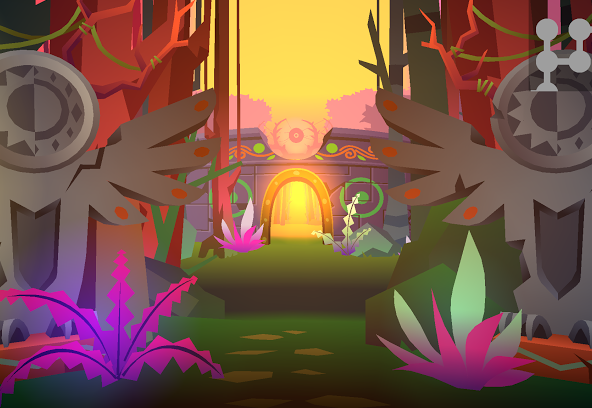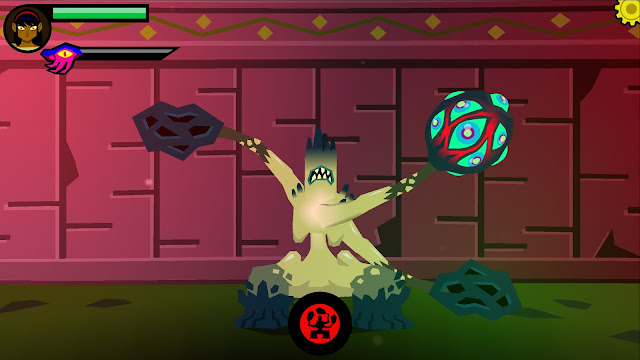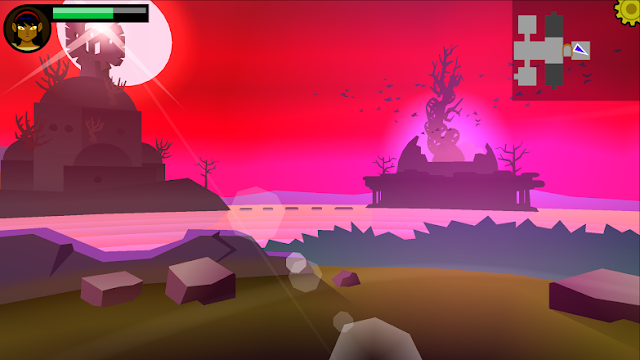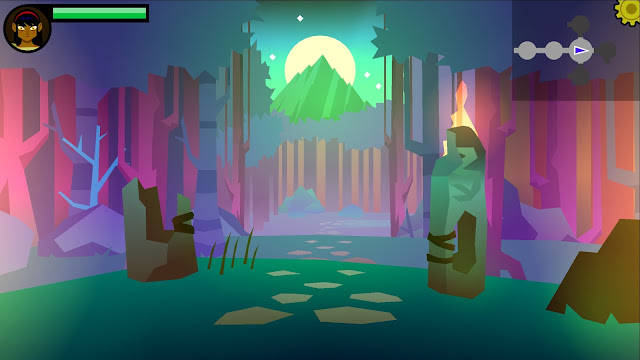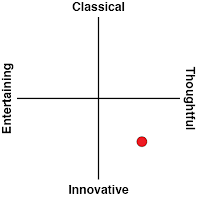Review by Matt S.
Severed is a very special game. Feverish in vision and utterly unique in tone, it’s a mesmerizingly artful, modern and nuanced experience, while simultaneously being the most accessible dungeon crawler you’ll ever play.
Related reading: For a second opinion on the game, check out Mikhail’s review of it on PlayStation Vita.
At first, you’ll think it is like just about every other ‘crawler that you’ve ever played. The world has been broken up into a grid of “squares”, and with each movement you can progress from one square to the next. You experience the world from a first person perspective, and for the most part you’ll be presented with linear corridors and rooms to explore.
But then you’ll come to an enemy encounter, and that’s where Severed starts to differentiate itself. There are no random encounters in this game; each battle is pre-determined, and most of them are unavoidable – to progress you’re going to have to get your hands dirty. Most importantly of all, though, is that success in battle requires skill and precision, with the statistics working away in the background almost having no effect at all. This is rare stuff for a ‘crawler indeed.
Each battle is more puzzle that a traditional RPG conflict. Each enemy has certain attack patterns and weaknesses, and by swiping on the touch screen you need to counter enemy attacks, while exploiting the enemy’s weaknesses to strike back. A visual countdown advises you of when enemies will attack, and there’s plenty of projection when it comes to most of them; this is not a game that delights in surprising you, but at the same time it is unforgiving. Play well and you’ll emerge from each encounter unscathed. Play poorly and enemies will sap your health quickly, and the precious fruits that you find in the world that restore health aren’t that frequent.
Because each enemy is so distinctive, each new one that you encounter is an utterly delightful and exciting moment. Severed is careful to introduce you to new enemies by pitting you in an one-on-one battle against them first, giving you a chance to learn that the plant enemy needs to have its deadly thorns chopped away before revealing its eye weak sport, or that the ugly tentacle blob has a habit of leaping around the place. Once you’ve had your chance to learn what an enemy does, future encounters will include a mix of that enemy, as well as others, and they’ll come at you from up to four different directions at once. Severed’s combat system is at its most exciting when you’re frantically turning around in order to counter enemy attacks, that are each coming at different frequencies and speeds.
Somehow, for all that chaos, not once does the game ever feel unfair. It’s a masterpiece of balancing, and the near-complete de-emphasis on experience levels and escalating power, as most RPGs like to immerse players with, mean that you’ll also never feel overpowered for not being at a “high enough level” to take on an encounter. This is a purely skill-based combat system, and while there are some superficial upgrades to health, damage that you can make along the way, it’s entirely possible to get through the game on raw skill alone and minimal upgrades. As I said, this game is far more puzzler than traditional RPG.
As entertaining and immersive as that combat system is, it’s actually not the reason that I love Severed as much as I do. This is a game with one powerful narrative backing it, and an earthy power that belies the fantastic landscapes and environments that it provides.
Looking like nothing short of a fever dream, Severed is perhaps more like the classic Year Walk than any actual RPG. We play as one armed Sasha, who has entered a nightmare, surreal realm of geometric shapes and tribal colour. She herself belongs to a native people, and her quest to save her family, is as much a journey of personal development as it is of heroism. Just as Year Walk reflects a traditional coming of age story, so does Severed – worlds apart in terms of design and aesthetic, but remarkably similar in the respect that they show for traditional storytelling.
Because the world is so surreal, no two locations in Severed are the same, and the pacing of the game is such that none overstay their welcome. Instead, you’ll transition from one richly detailed space to the next, drinking in the intense atmosphere before moving on. There’s thudding tribal music in the background to support the aesthetics, too. It’s beautiful, but also appropriately savage, and while the game goes to great lengths to be fair in how it plays, there is nevertheless a persistent hostility to the design of the world that makes it clear how deadly mistakes can be.
Sasha herself knows how to indulge her inner savagery, too. She attacks bloodily, and there’s aggression in the way you move around the world to match the rhythms of the world. To upgrade abilities, you need to have access to limbs, eyes and so on that have been severed by defeating enemies.
Storytelling itself is quite thin. Severed has rich cultural heritage and meaning, but that’s largely projected through the design an aesthetics, rather than characters standing around and talking to themselves. In fact, much like what happens in the Souls games, if you’re not paying attention you’ll miss a great deal of the nuance to Severed’s storytelling. The attention that the developer, DrinkBox Studios, has afforded the small details in environment and enemy design should be impossible for such a small studio, but there you go – every step on this particular journey is loaded with intent and purpose.
There’s even a couple of neat technical features that help support the game. The ability to broadcast or record footage to the iPhone is something I’d like to see more iOS games adopt. As someone who enjoys the sharing features on my PlayStation 4, I would like to see this implemented in all iPhone games going forward.
Severed is the kind of game that I hope ends up on school and university “reading list.” Not because a particularly well made game (though it assuredly is), but also because it’s a masterpiece of theming and ambient storytelling. Games this evocative are rare and special indeed.
– Matt S.
Editor-in-Chief
Find me on Twitter: @digitallydownld

